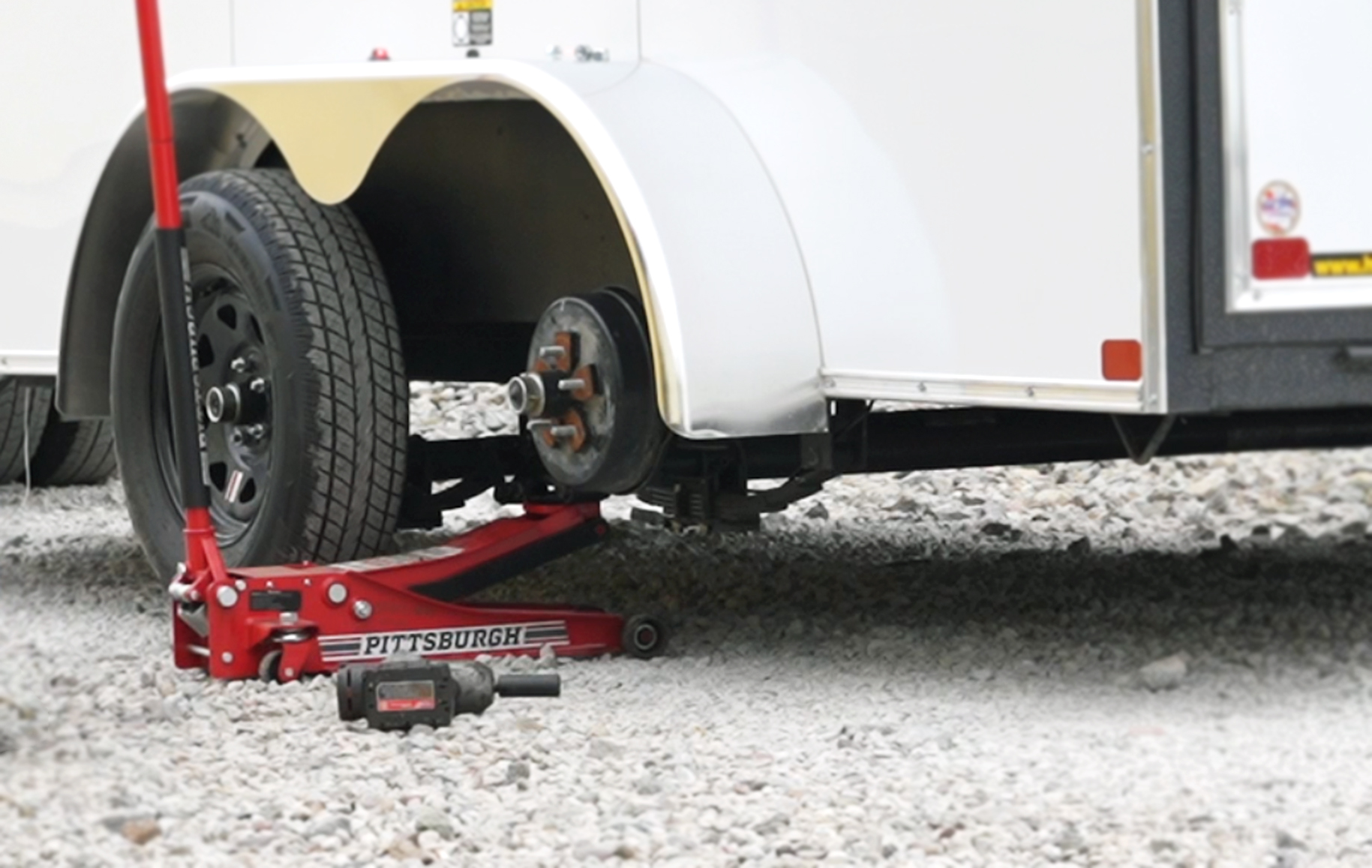This article answers the popular question: What types of trailer noises should I be concerned about?
Knowing the difference between ‘normal’ trailer noises and ‘concerning’ trailer noises is important. With a fully loaded trailer, your trailer is naturally going to make some noises as you’re towing it down the road. Use the noise guide below to diagnose normal and unusual trailer noises. If you hear any of the unusual noises indicated below, it may indicate a problem with your trailer or trailer parts. Get your trailer inspected immediately before you do more damage!
Normal Trailer Noises
Tow Load
When your trailer is fully loaded with tools, materials, or equipment, it will naturally be noisy when hauling. When you hit bumps in the road, the materials will shift and move. Noises caused by a tow load will generally be inconsistent and only be loud when you go over bumps, drive on gravel, or make a sharp turn.
To avoid excessive tow load noises and rattles, the best thing you can do is secure all items in your trailer using ratchet straps, totes, or shelving.
Suspension
When your trailer is fully loaded, the suspension on your trailer has to work harder. This causes your suspension to make noises. Normal noises coming from your suspension usually only happen when you are going over speed bumps or traveling on rough terrain. Suspension noises should not be consistent. If they are, this may indicate a bigger issue.
Hitch Noises
The connection between your vehicle and the trailer – called the hitch or coupling – will always be moving and may sometimes create noise when you are maneuvering your trailer, or making sharp turns. To avoid noises from your coupling or hitch, ensure your coupling is well-greased to avoid friction.
Concerning Trailer Noises
Concerning trailer noises are a good indication that something may be wrong with your trailer. Though most noises (listed above) are harmless, and general everyday noises of towing, there are a few noises that could signal something is wrong.
Bearings
Your trailer bearings are vital to a smooth tow. If your bearings become worn or damaged, they will begin to make a loud sound. A good indication that you may have an issue with your bearing is if you start to hear a chirping noise that then develops into a squealing noise with vibration. To avoid worn bearings, get them inspected and re-greased annually.
For more information on trailer bearing maintenance, and to repack your wheel bearings, read this article by BlueSwift Axles.
Brakes
A squeaking or grinding noise when you are pressing on the brakes is a cause for concern. Worn brake pads can result in metal-on-metal grinding, causing extensive damage to your brakes over time.
If you notice squeaking or grinding brakes and need to have your brakes replaced, this article will guide you to purchasing the right kind of brakes for your trailer.
Axles
If there is an unusually loud clanking or clunking as you put your vehicle into gear, or if a vehicle seems to struggle to get power as it starts to move, there may indicate axle-joint damage. If bolts on your axle begin to come loose, from being bent or damaged, you may also hear an unusual clicking sound when turning the vehicle. These clicking sounds will be heard on the side of the faulty axle shaft and typically become noisier during sharp or fast turns.
Axle Repair by BlueSwift Axles
If you begin to hear unusual noises and you think it may be your axles, don’t delay. Our team of trailer experts at BlueSwift Axles is ready to help! Browse our online inventory, and give us a call today to discuss your trailer axle replacements.
